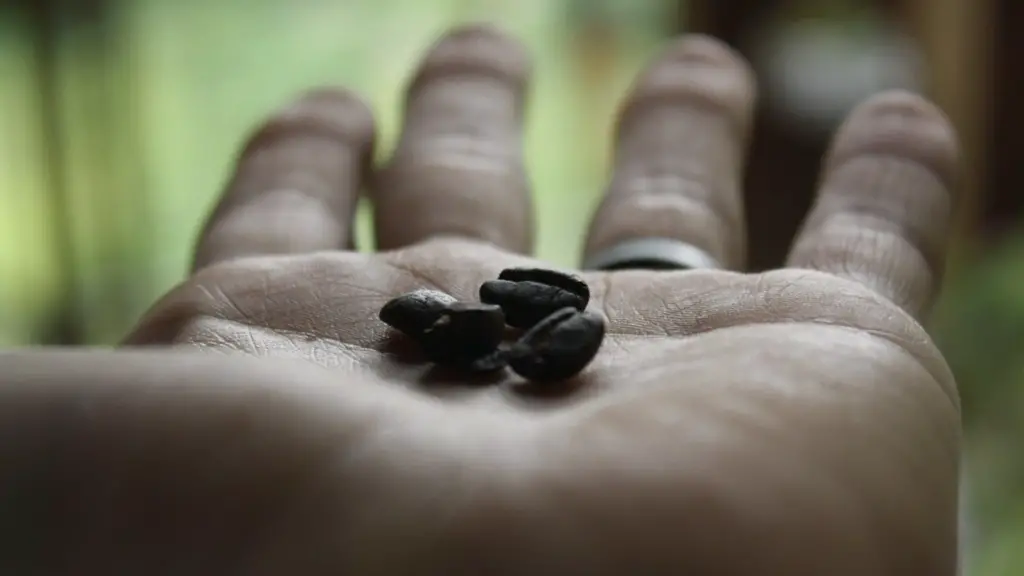Coffee is a delicious beverage that gives us that morning jolt. It’s a part of many people’s morning routine, with some having even two or three cups a day. But should teenagers be drinking coffee every day? When it comes to teenagers, many parents worry if drinking coffee on a regular basis could be harmful.
Coffee does, in fact, contain certain compounds in it that could possibly be bad for teenagers. But the research on this topic is inconclusive. Generally speaking, for most healthy individuals, the consumption of a moderate amount of coffee, up to three cups a day, is acceptable. As the American Academy of Pediatrics (AAP) puts it, moderate intake “likely has only minimal health risks and may even improve health outcomes.”
However, drinking coffee in high doses or while also consuming other caffeinated beverages like energy drinks can significantly increase the amount of caffeine in a teen’s system, which can lead to health issues and increased anxiety levels. Caffeine affects the body’s natural balance of energy, often leading to higher blood pressure, heart palpitations, rapid or irregular heartbeat, and stress. It can also alter teen’s sleeping patterns. This is why the AAP recommends that for teens, caffeine consumption should be limited to no more than 100 milligrams a day – equivalent to an 8 ounce cup of coffee.
Moreover, drinking too much coffee can affect teenagers’ growth and development. It is believed that caffeine can interfere with hormonal balance, increase stomach irritation, and cause a loss of appetite. People who consume large amounts of caffeine may even experience severe headaches, without necessarily attributing them to the beverage itself. All these may affect negatively the physical and emotional health of teens.
While drinking coffee every day might not have a very big impact on adolescents, education plays a very important role. Teens, particularly girls, should be informed of the potential risk associated with caffeine consumption and be encouraged to limit their beverage intake. Being aware of the possible unfavorable effects, they would be in a better position to make more informed choices.
Aside from informing teens, it’s important to remember that, as with anything, moderation is key. In terms of coffee, that means drinking no more than three cups of coffee a day, and not in combination with other caffeinated beverages. Coupled with ample hydration and regular physical activity, moderate coffee intake can be part of a balanced and healthy lifestyle for teens.
Physicalism versus Responsibility
When discussing the potential hazards of drinking coffee everyday for teens, it’s worth Shedding light on two distinct perspectives. On the one hand, there’s the physicalism view which argues that caffeine intake may lead to prolonged unhappiness, fatigue and dysphoria due to its strong mood-altering effects. According to this line of thought, youngsters should be made aware of the downsides of coffee drinking and be discouraged from consuming too much.
On the other hand, there is the view of personal responsibility, which suggests that the coffee drinking decision should be left to the discretion of teenagers. Adopters of this line argue that people, even youngsters, have autonomy and should be trusted to make the right decisions regarding their diet and health. As such, they should be encouraged to become more informed of what they’re consuming and better understand the effects it has on their emotional and physical wellbeing.
It is worth noting that the two perspectives are not mutually exclusive. In fact, proponents of both views can agree that educating young people and promoting responsible behavior is fundamental for making the best decision regarding coffee drinking.
Coffee Culture In Schools
The rise of coffee culture in schools is a phenomenon worth noting. There is a growing presence of coffee service providers in many educational establishments. Besides, youngsters have easy access to coffee shops and may even bring their own coffee to school. From teetotalers to avid coffee drinkers, teens are experimenting with the popular beverage.
This has created an interesting environment where coffee mingles with education.
Responsible behavior from both schools and students is necessary in these situations. Boarding schools and larger institutions should address issues of overconsumption and caffeine addiction. It is important to promote an understanding about how coffee affects teenagers and provide them with information about it.
At the same time, students should stick to their caffeine intake limits and monitor their daily coffee drinking habits. They should develop healthy drinking practices and be aware of new trends in coffee. This is especially important for those who may be predisposed to coffee addiction.
Different Types Of Coffee Drinks
The variety of coffee options available today is impressive. From espresso, cappuccino and macchiato to flat whites, frappuccinos and iced coffee, there’s something to satisfy every taste. Some coffee drinks, however, can contain added sugars, flavored syrups, and other unhealthy ingredients.
Teens should be informed about the differences among these drinks, their content, and nutritional value. They should learn that some coffee drinks contain high amounts of fat and sugar, and should be avoided. By understanding the difference between healthy and unhealthy coffee drinks, teens can make more informed choices about their beverage consumption.
The Importance Of Eating Smartly
It goes without saying that adolescents who drink coffee should be mindful of the overall dietary choices they make. Eating a balanced and nutritious diet is the key to optimal wellbeing. From the occasional ice cream or sugary drink treat to the occasional cup of coffee, all food and beverage items can be a part of a teenager’s regular diet, as long as consumption is kept in moderation.
It’s essential to make smart dietary decisions and pay attention to hunger cues to prevent over-consuming calorie-dense and nutrient-poor food items. Eating smartly also means staying well-hydrated, avoiding processed and fried foods, and incorporating all food groups into one’s diet for optimal health and longevity.
Exercising Wisely
In addition to eating smart, exercising wisely can be beneficial for teenagers’ overall health, regardless of their caffeine consumption habits. Developing a sporty lifestyle and adopting regular physical activity may help reduce stress levels and negative feelings while improving physical strength, endurance and overall wellbeing.
It doesn’t necessarily have to be a strenuous activity; simply going for a casual stroll or a bike ride can be enough. Regardless, encouraging teens to stay active and physically engaged can have great benefits, both in terms of physical and mental health. Any form of exercise can be a great way to nurture young minds and bodies and enhance overall wellbeing.
Risks Associated With Excessive Caffeine Intake
Caffeine overdose is a real risk for young people who are consuming too much coffee or other caffeinated beverages. Some of the telling signs of excessive caffeine intake are dizziness, nausea, vomiting, and dehydration. Too much caffeine can also impair the ability to concentrate and focus, and damage one’s teeth.
When it comes to adolescents and teenagers, although coffee itself is considered relatively safe, excessive caffeine intake can be dangerous. It can lead to a myriad of health issues, disrupt normal physiological and psychological functioning, and significantly weaken immunity. As such, teenagers should be aware of their caffeine intake and be mindful of their drinking habits to avoid any possible risks.
Myths surrounding coffee
Despite all the available evidence, there is still a lot of misinformation and misbeliefs surrounding coffee. One of the most common myths is that caffeine can cause dehydration but in reality, small amounts of coffee in combination with plenty of water can be hydrating and provide a number of its very own health benefits.
Another widely-accepted myth states that coffee can reduce fertility. In actuality, there’s no definitive research to make that claim, although over-consumption of coffee can cause certain problems for those trying to get pregnant.
Finally, the popular belief that coffee is bad for our skin has also been widely debunked. Quite the opposite, coffee packed with antioxidants can actually help ward off free radicals that may otherwise damage our skin.
The Effects On Special Populations
In some cases, the effects of drinking coffee can be more pronounced. For example, those who suffer from anxiety disorder and have a tendency to experience increased heartbeat with coffee intake should limit their caffeine intake. Caffeinated drinks can also worsen conditions like depression and make it harder for teens to sleep. As such, those who have preexisting mental or physical conditions should not consume beverages containing high amounts of caffeine as it could negatively affect their wellbeing.
Furthermore, anyone taking any medications that might interact with caffeine should avoid coffee over-consumption. It is always wise to check with one’s doctor about the safety of coffee drinking for those on prescription drugs. In any case, drinking coffee should always be in moderation, even for the healthiest of young people.





